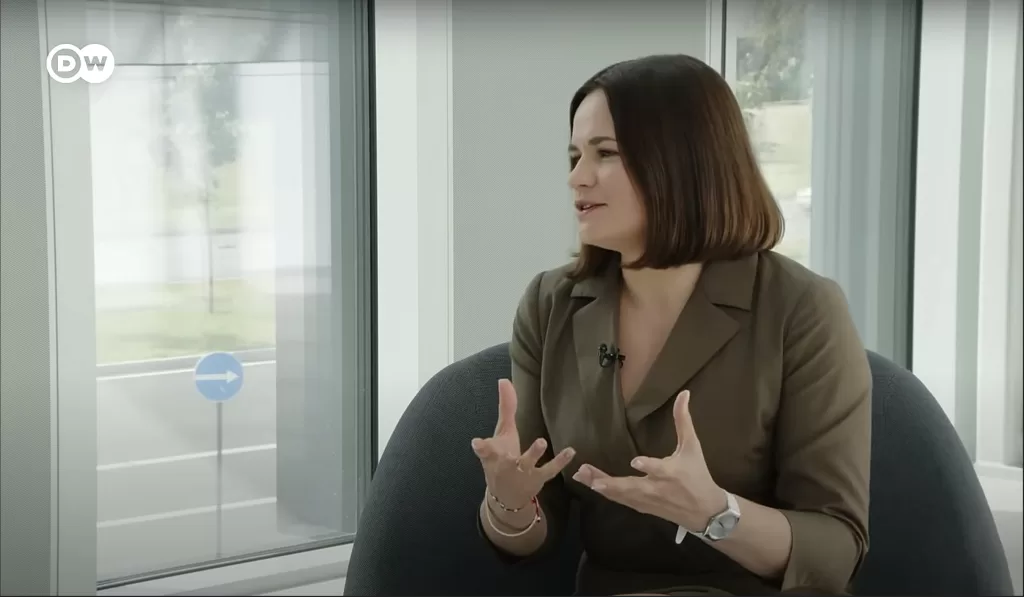In a lengthy interview with Deutsche Welle, Sviatlana Tsikhanouskaya reflected on the issues concerning Belarusians. The leader spoke about what some call her “dictatorship” within the democratic forces, the role of Belarusian volunteer fighters in Ukraine, and her contacts with the official Kyiv government and the Russian opposition.
📌 “Lukashenka is so attached to political prisoners that he believes even releasing one or five of them would make him lose his face as a dictator, and he does not want to make such concessions. We need a comprehensive approach because we cannot persuade or appeal to his humanity. Political prisoners are, in his eyes, the last bastion of his legitimacy. In that same week when 18 people were released, another 72 were detained”.
📌 “I am not imposing a dictatorship. There’s no such thing as ‘Tsikhanouskaya said it, so everyone did it’. We do not have power in the traditional sense. I do not order anyone to do anything. People come together at their initiative to work together because we all share a common goal. I wish there were more leaders like Pavel Latushka, who may work on his own behalf but also toward the common goal. People may have different opinions and visions of the future but all share the same ultimate goal”.
📌 “The majority of Belarusians may someday approve of armed resistance but Belarusians are fundamentally a peaceful nation. Maybe I’m wrong but I hope the transition to a new, democratic Belarus can be achieved peacefully. We can debate this for a long time but we must understand what civil society is ready for. I do not think Belarusians are prepared for military confrontation”.
📌 “There has been more communication between the Belarusian diaspora and Ukrainians recently. I’m glad that President Zelenskyy’s rhetoric towards Belarus has shifted and Ukraine has appointed an ambassador-at-large to work with Belarus. Step by step, we’re moving toward each other. We have contacts with the Russian opposition, though not very close. We can share experiences and tools on how to deal with regimes, but we must understand that our contexts are different”.








